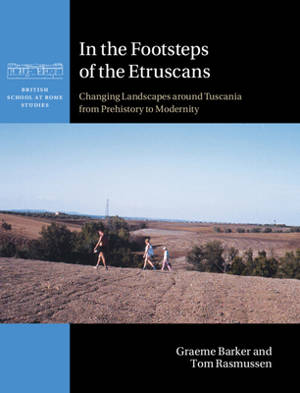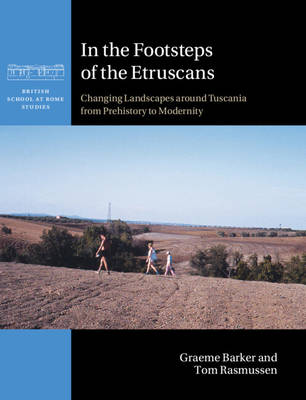
Door een staking bij bpost kan je online bestelling op dit moment iets langer onderweg zijn dan voorzien. Dringend iets nodig? Onze winkels ontvangen jou met open armen!
- Afhalen na 1 uur in een winkel met voorraad
- Gratis thuislevering in België vanaf € 30
- Ruim aanbod met 7 miljoen producten
Door een staking bij bpost kan je online bestelling op dit moment iets langer onderweg zijn dan voorzien. Dringend iets nodig? Onze winkels ontvangen jou met open armen!
- Afhalen na 1 uur in een winkel met voorraad
- Gratis thuislevering in België vanaf € 30
- Ruim aanbod met 7 miljoen producten
Zoeken
In the Footsteps of the Etruscans
Changing Landscapes around Tuscania from Prehistory to Modernity
Graeme Barker, Tom Rasmussen
€ 187,45
+ 374 punten
Omschrijving
In the Footsteps of the Etruscans describes the archaeology of the countryside within a ten km radius of the small town of Tuscania near Rome, throwing light on the unrecorded lives of the generations of farmers and shepherds who have lived there. What was the character of prehistoric settlement prior to Etruscan urbanization? How did urbanization shape the lives of the 'ordinary Etruscans' working the land, hardly ever addressed in Etruscan archaeology? What was the impact on these people of being absorbed into the expanding Roman empire and its globalised economic structures? How did the empire's collapse and the subsequent emergence of the nucleated medieval village affect Tuscania's rural population? The project's 7500-year 'archaeological history', from the first farmers to those grappling with globalisation today, contributes eloquently to our understanding of how Mediterranean peoples have constantly shaped their landscape, and been shaped by it.
Specificaties
Betrokkenen
- Auteur(s):
- Uitgeverij:
Inhoud
- Aantal bladzijden:
- 400
- Taal:
- Engels
- Reeks:
Eigenschappen
- Productcode (EAN):
- 9781009230025
- Verschijningsdatum:
- 12/10/2023
- Uitvoering:
- Hardcover
- Formaat:
- Genaaid
- Afmetingen:
- 216 mm x 279 mm
- Gewicht:
- 1220 g

Alleen bij Standaard Boekhandel
+ 374 punten op je klantenkaart van Standaard Boekhandel
Beoordelingen
We publiceren alleen reviews die voldoen aan de voorwaarden voor reviews. Bekijk onze voorwaarden voor reviews.











